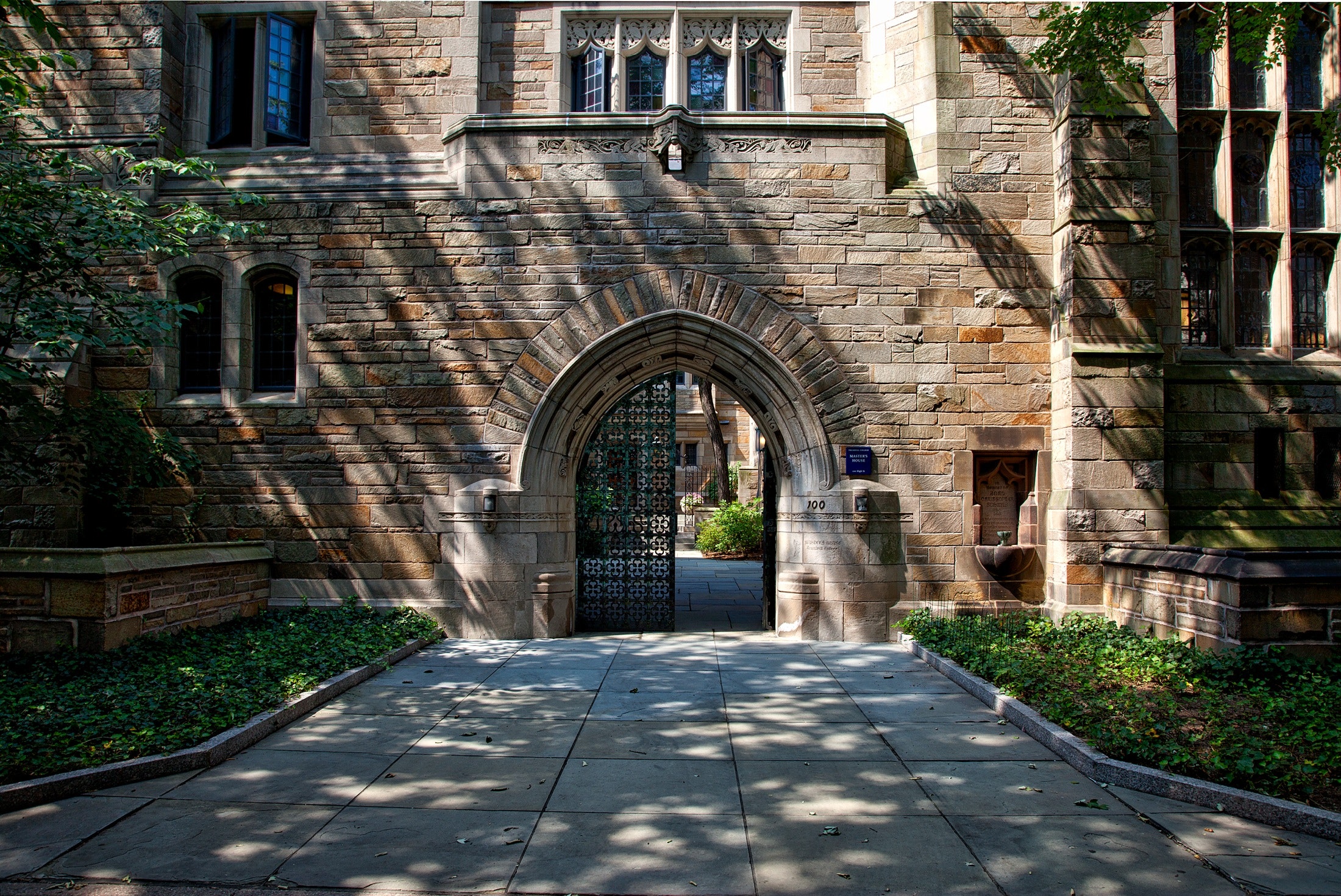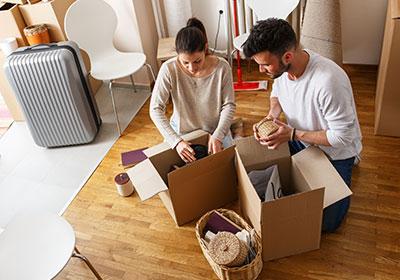Atlas® makes apartment moving simple.
Atlas apartment movers make your move simpler. In this guide, you will find answers to common questions about everything from finding your first apartment to ensuring that you get your deposit back when you move out. Follow these pointers and expect a stress-free move.
.jpeg)
BEST SEASON FOR APARTMENT MOVING
When is the best time to move to a new apartment?
COLLEGE APARTMENTS:
If you are moving to a college or university community, summer offers the best selection of available apartments. However, because school is out, summer is the most popular time for moving in general. Typically, this means having to book a mover further in advance.
CITY APARTMENTS:
In urban areas, the best time to move varies. People tend to stay put during the November and December holiday season, so you may see fewer apartments available. On the other hand, you have a better chance of finding a deal.
Late April is usually a good time for moving apartments. You can beat the busy summer season, and the weather is typically mild enough to make moving more pleasant.
Get quotes from moving companies six weeks before your apartment move to make sure movers are available and ensure you get the best deal.
HERE TO HELP:
Ultimately, the best time for your apartment move depends on multiple factors. Some, like your city's availability of housing, are beyond your control. Talk to your local Atlas mover. Our professional moving experts can provide informative advice and knowledge about the rental community you are moving into.
HOW TO FIND & ASSESS A NEW APARTMENT
How do I find a new apartment?
Whether you are looking for basic living or upscale extras, you are wise to start looking early for the perfect apartment. Once you determine the neighborhood you would like to live in, schedule viewings of several different apartments in the area and do some comparison shopping.

When you walk through an apartment, have these items with you:
- A tape measure to see if your furniture will fit.
- Measurements of your large furniture.
- A plug-in night light to test all the outlets.
- One light bulb to test light fixtures.
- A flashlight to examine unlit areas.
Print the Atlas Apartment Comparison Checklist (pdf) for each apartment you visit and record your findings. But do not stop there—knock on doors, introduce yourself, and ask these questions:
- Are the neighbors friendly?
- What do they think about the way the complex or building is managed?
- What do they say about noise?
Once you find the apartment you want, be ready to act. Have your checkbook, proof of income, references, and credit report on hand. When you meet with the manager, be punctual, neat, and friendly. The good impression you make will work in your favor.
I HAVE A DISABILITY—HOW DO I FIND A PLACE THAT IS ACCESSIBLE?
If you are disabled, you can find accessible apartments on popular websites, such as: Apartments.com, ForRent.com, MyNewPlace.com, and Rentals.com. Specify "disability access" or "handicap access" to locate places that can accommodate you.
SIGNING A LEASE
What should I know before signing a lease for an apartment?
A rental lease is a legally binding, written agreement between you (lessee) and the landlord (lessor). It is usually a standard form. However, it may be amended by writing changes on the document; both you and the landlord must initial the changes to show you agree. Make sure you do the following before signing:
- Read the rental lease carefully. It should describe the condition of each room in detail.
- Note any damage or items in disrepair. Get the landlord to agree, in writing, to make repairs before you sign or pay a deposit.
- Make sure you are aware of any extra fees involved, like a pet fee, a parking fee, or a utility fee.
- Clarify who pays for electric, gas, water, sewage, trash, lawn care, and pest control. If you are on the line for these expenses, make sure you are prepared to pay.
If you do not understand something in the lease, ask what it means. Never sign a lease with blanks to be filled in later. And never settle for an oral agreement. If it is not in writing, you have no proof to support you in a dispute.
If you have doubts about anything in a lease agreement, talk to an attorney.
APARTMENT MOVE-IN CHECKLIST
What do I need to do before moving into an apartment?
Follow this move-in checklist for a smooth apartment move.
FOUR WEEKS BEFORE YOU MOVE
- Apartments are limited on space. Decide which items you will discard or give away. If you wish to turn unwanted items into cash, follow the tips here: How to Hold a Moving Sale.
- Schedule your move with a professional moving company, such as Atlas. Moving companies can fill up spots quick, so be sure to schedule your furniture and packing services early.
- Ask your physician and dentist to recommend a colleague near your new apartment. Get copies of refillable prescriptions.
- If you have school-aged children living with you, arrange a transfer of school records.
- Transfer personal insurance records.
- Check your renter's insurance policy to see if moving is covered. Make sure you have the coverage you need in your new apartment.
- If you plan to move house plants, read How To Move Your Plants and start preparing them.
THREE WEEKS BEFORE YOUR MOVE
- Plan to use up perishable food items before your move.
- Movers can not take aerosols, flammables, corrosives, ammunition, or propane tanks (see Moving Non-allowables). Plan to use them up or give them away.
- Drain fuel tanks on gas-powered equipment such as lawn mowers, leaf blowers, and chainsaws.
- Complete a change-of-address form for each person in the household who will receive mail at your new apartment. You can get the forms at the post office or use the U.S. Postal Service's online form.
- If you have pets, read How To Move Your Pets.
TWO WEEKS BEFORE YOUR MOVE
- Make confirmed travel reservations.
- Decide which items you will pack, and which you would like Atlas to pack.
- Close or transfer charge accounts.
- Return library books and other things you have borrowed.
- Collect things you have lent to others, and any items in lay-away or cold storage. Pick up the dry cleaning.
- Dispose of cleaning fluids, acids, caustic drain cleaners, and other non-allowable items.
- Draw up a floor plan of your new apartment for placement of furnishings.
- Arrange to have your TV and utilities disconnected. Movers are not permitted to take down TV antennas, but your Atlas mover can arrange for a third-party to perform the service.
Your local Atlas mover provides professional-grade, do-it-yourself packing materials at reasonable prices, along with professional apartment moving services.
What are the Necessities When Moving into a New Apartment?
Moving into a new apartment can be an exciting but also overwhelming experience. To ensure a smooth transition and make your new space feel like home, here are some necessities you may want to consider:
- Furniture - This includes a bed, couch, chairs, dining table, and any other necessary pieces for your living space.
- Kitchen Essentials - Pots and pans, cooking utensils, dishes, glasses, silverware, and a microwave are some of the basics to consider.
- Cleaning Supplies - Make sure to have a broom, dustpan, mop, vacuum, and cleaning solutions for the kitchen and bathroom.
- Bedding and Linens - Do not forget to bring sheets, pillows, comforters, and towels.
- Toiletries - Stock up on shampoo, soap, toothpaste, and any other essentials you need for your daily routine.
- Tools - A hammer, screwdriver, and pliers can come in handy for hanging pictures or assembling furniture.
- Internet and Utilities – Make sure to set up internet service and set up utilities such as electricity, gas, and water before moving in.
- Storage Solutions - Consider purchasing storage bins or shelving to help organize your belongings.
- Safety Essentials - Smoke detectors, a fire extinguisher, and a first aid kit are important for any new living space.
MOVING OUT
Tips for moving out of an apartment.
Moving out of an apartment is rarely as fun as moving in, but following these moving out tips will prevent it from becoming chaitoc.
WHEN DO I NEED TO GIVE MY APARTMENT NOTICE IF I PLAN TO VACATE?
If you rent month-to-month, notify your landlord in writing at least 30 days before your move. Leases usually include a clause about how much notice a landlord requires if you do not intend on renewing. If your lease does not specify, it might not be necessary, but it is a nice courtesy to give them at least 30 days of notice. They will need that time to find a new occupant.

HOW CAN I AVOID PROBLEMS IN GETTING BACK MY SECURITY DEPOSIT?
Moving out of an apartment can be costly, so getting your security deposit back will help your budget. A security deposit may equate to one month's rent or more. As a rule, you should get it back within 30 days after you vacate. If you have not received your deposit back after 30 days, contact your landlord and confirm that they have your forwarding address and are aware that you are owed a deposit.
A good relationship with your landlord works in your favor. It will help you get a timely return of your security deposit.
The landlord is not allowed to deduct for normal wear and tear, nor refuse to refund without a reason. Sometimes damage can occur when moving out. If you use a reputable mover, you will not have to worry. Your local Atlas mover, for example, carries insurance in the unlikely event your apartment is damaged in the moving process.
Do You Have to Clean an Apartment Before Moving Out?
When it comes to moving out of an apartment, there is often confusion about whether you need to clean the space before leaving. The answer to this question largely depends on your lease agreement and the expectations of your landlord or property manager.
Many lease agreements include a clause stating that tenants are responsible for leaving the apartment in a clean and tidy condition upon move-out. This means that you may be required to clean the floors, countertops, appliances, and bathroom fixtures. You may also need to remove any trash, dust, or debris that has accumulated during your tenancy.
If you fail to clean the apartment properly, you may be subject to cleaning fees or deductions from your security deposit. However, some landlords may offer cleaning services as an option for an additional fee, so be sure to check with your landlord or property manager to determine the specific requirements for your situation.
Overall, it is always a good idea to leave your apartment as clean as possible when moving out. Not only does it help ensure a smooth and amicable transition with your landlord, but it also ensures you will receive your security deposit in a timely manner.
